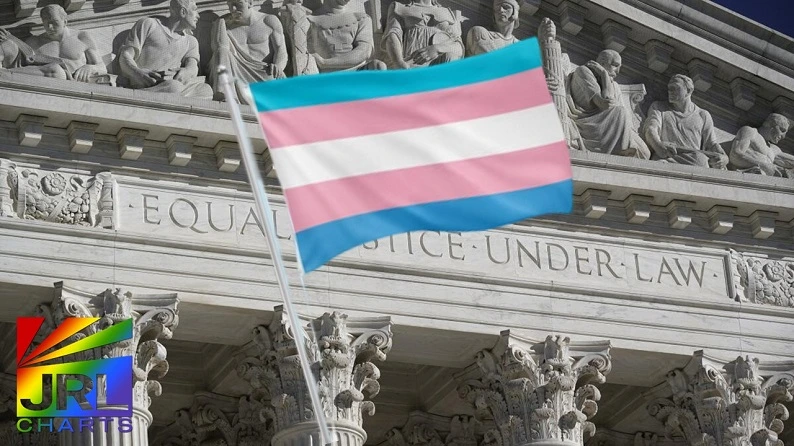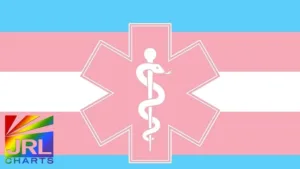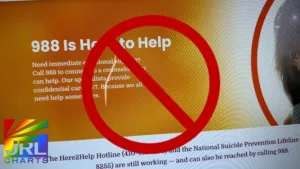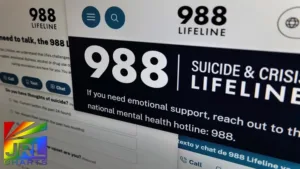WASHINGTON, D.C. — (June 18, 2025) — In a landmark decision that LGBTQ+ advocates are calling catastrophic, the U.S. Supreme Court has upheld Tennessee’s ban on puberty blockers and hormone therapy for transgender minors, ruling 6–3 to reject constitutional challenges brought by three teens and their families.
Related Links:
The court’s conservative majority ruled that the state law known as SB1 does not violate the Equal Protection Clause—allowing Tennessee and other states with similar bans to move forward with restrictions that could affect thousands of transgender youth.
“We leave questions regarding its policy to the people, their elected representatives, and the democratic process,” wrote Chief Justice John Roberts for the majority.
Sotomayor: Court Is “Authorizing Untold Harm” to Transgender Children
Justice Sonia Sotomayor issued a scathing dissent, warning that the ruling sets a dangerous precedent.
“Today’s decision authorizes, without second thought, untold harm to transgender children and the parents and families who love them,” Sotomayor wrote.
Joined by Justices Kagan and Jackson, Sotomayor emphasized that the court failed to recognize the real-life consequences of stripping medical autonomy from vulnerable youth already facing increased risk of depression and suicide.
Tennessee’s SB1: A Blueprint for Nationwide Bans
Enacted in 2023, Tennessee’s SB1 prohibits hormone therapy and puberty blockers for transgender minors, while still allowing the same treatments for non-trans-related medical issues.¹
U.S. District Judge Eli Richardson had previously blocked the law, ruling that the banned treatments are “safe, effective, and comparable to other permitted pediatric care.” But the U.S. Court of Appeals for the 6th Circuit reversed that decision, applying a “rational basis” legal test that does not require heightened scrutiny.²
The Supreme Court affirmed that reasoning, ruling that SB1’s restrictions are not discriminatory on the basis of sex, but instead are grounded in age and treatment usage.
Trump Admin Sides with State Law—Biden Admin Opposed
In a stunning reversal of federal alignment, the Trump administration submitted a February letter to the Court supporting SB1, stating that it “would not have intervened to challenge” the law. This followed a broader series of anti-LGBTQ+ executive orders signed by Trump in January 2025, including efforts to restrict gender-affirming care under age 19.³
By contrast, the Biden administration had joined the plaintiffs in arguing that SB1 violated the Equal Protection Clause.
What’s Next? Over Half the Country Has Similar Bans
The ruling is likely to embolden other Republican-led states. According to Kaiser Family Foundation (KFF), over half the U.S. already has some version of Tennessee-style bans on the books.⁴
LGBTQ+ rights advocates fear the SCOTUS ruling opens the floodgates for expanded legislative attacks on healthcare, civil rights, and gender identity protections.
“This is more than a policy dispute,” said LGBTQ+ attorney Rachel Stein. “It’s a calculated rollback of rights that puts real lives at risk.”
As the U.S. Supreme Court narrows the constitutional protections for trans youth, the fallout will extend far beyond Tennessee. The battle for LGBTQ+ healthcare access has now moved into every statehouse—and every voting booth.
Footnotes:
-
SB1 Language: Tennessee’s law specifically bans gender-affirming care for trans youth while allowing similar treatment for conditions like precocious puberty.
-
Legal Standard: The 6th Circuit used “rational basis” review, a low bar requiring only that the law be rationally related to a legitimate government interest.
-
Executive Orders: Signed by Trump in January 2025, these orders aimed to roll back Obama- and Biden-era protections for LGBTQ+ youth.
-
KFF Report: The Kaiser Family Foundation notes that over 25 states have enacted or proposed similar laws targeting transgender youth healthcare.
- LGBTQ Corporate Participation Plunges 65% in 2026 as DEI Retreat Reshapes Business Landscape - February 22, 2026
- Forbidden Fruits (2026) Ignites Buzz With Sapphic Undertones and Witchy Mall Cult Drama - February 21, 2026
- Trump Targets Netflix Board Member Susan Rice After ‘Take a Knee’ Remarks Spark Political Firestorm - February 21, 2026
// Affiliate Disclosure: JRL CHARTS is a digital news and media platform. We do not host, stream, or sell adult content. Some outbound links may contain affiliate tracking to licensed studio-owned platforms (e.g., LatinBoyz, AEBN, BiLatin Men). These links lead to legal, age-gated distributors and are provided strictly for editorial and informational purposes only.







